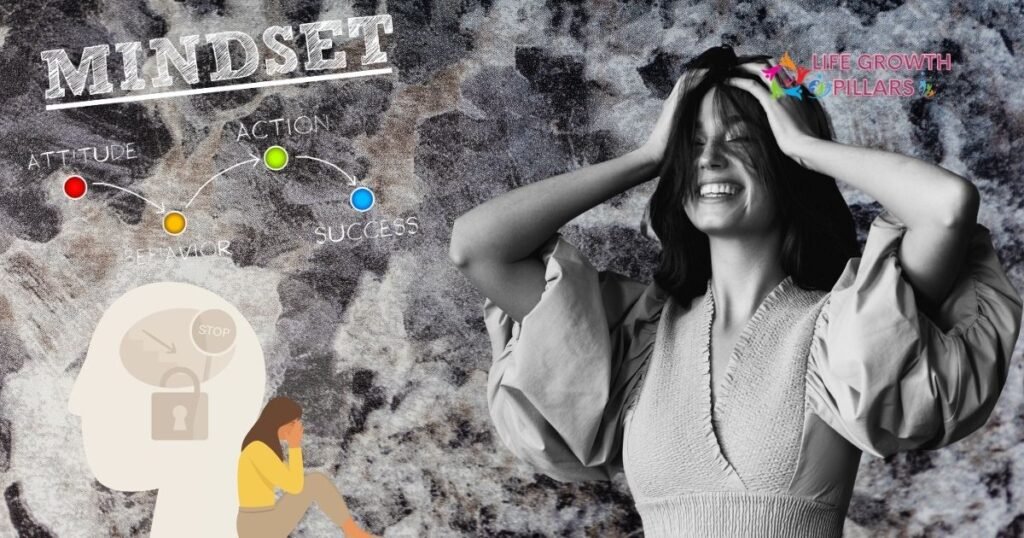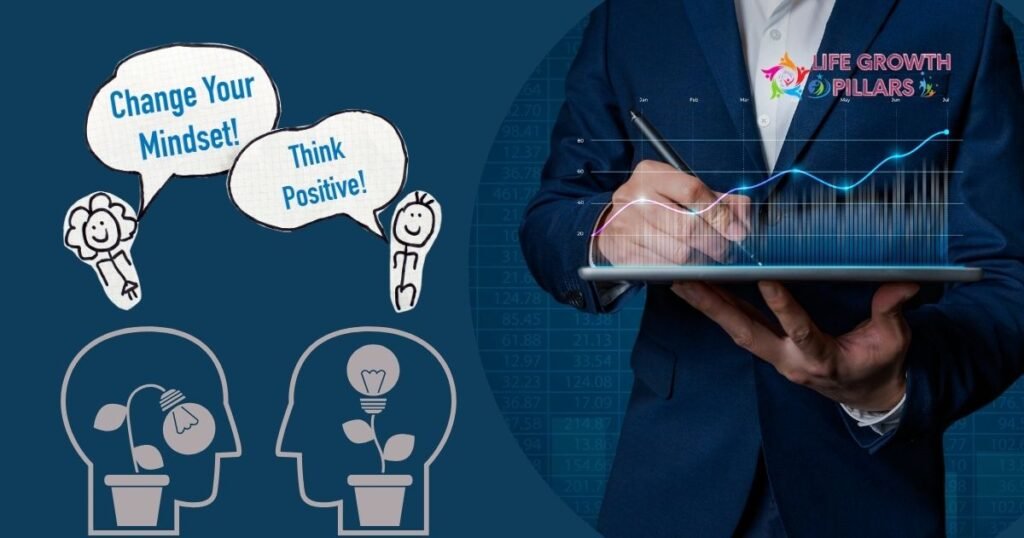Embracing Growth Over Fixed Mindset For Success
In the pursuit of success, one’s mindset plays a pivotal role, shaping the journey and outcomes. The stark difference between a fixed mindset and a growth mindset profoundly impacts an individual’s ability to reach their full potential. Understanding this fundamental contrast can unlock avenues for personal and professional advancement.

What Is A Fixed Mindset?
A fixed mindset is characterized by a belief that abilities, intelligence, and talents are innate and unchangeable. Individuals with a fixed mindset tend to avoid challenges, fearing failure and the implication it has on their perceived abilities. They may view criticism as a direct assault on their competence, often leading to a reluctance to take risks or explore new opportunities.
The Power Of A Growth Mindset
Conversely, a growth mindset thrives on the belief that abilities can be developed and refined through dedication, effort, and learning. Embracing challenges becomes a catalyst for growth rather than a source of apprehension. People with a growth mindset perceive failures as valuable lessons, using feedback constructively to improve and evolve.
Impact On Personal And Professional Development
The influence of mindset extends beyond individual perception; it significantly influences outcomes in various aspects of life. In the professional realm, individuals with a growth mindset tend to embrace challenges, seek opportunities to learn and develop, and persevere in the face of setbacks. This resilience often translates into innovative thinking, enhanced problem-solving skills, and a greater capacity for success.
In personal development, those with a growth mindset are more open to new experiences, which fosters personal growth and a sense of fulfillment. This mindset shift enables individuals to set meaningful goals, break barriers, and continually evolve, leading to a more fulfilling and enriched life.
Cultivating A Growth Mindset
Shifting from a fixed to a growth mindset is a journey that requires intentional effort and perseverance. Here are five actionable steps to cultivate a growth mindset:
- Embrace Challenges: See challenges as opportunities for growth rather than insurmountable obstacles.
- View Failure as Learning: Understand that failure is not a dead-end but a stepping stone towards improvement.
- Value Effort and Persistence: Recognize that effort and perseverance contribute significantly to success.
- Seek Feedback: Embrace feedback as a tool for improvement and development.
- Celebrate Growth: Acknowledge and celebrate progress, regardless of the scale.
The Science Behind Mindset Transformation
Understanding the neurological aspects of mindset transformation is crucial. Studies show that individuals with a growth mindset exhibit increased activity in areas of the brain associated with learning and resilience. This indicates that one’s mindset is not solely ingrained but can be reshaped through deliberate practice and consistent reinforcement.
Overcoming Challenges: A Growth Mindset Approach
Challenges are inevitable in both personal and professional spheres. However, the way one approaches these challenges differs based on mindset. A growth mindset enables individuals to embrace challenges as opportunities for growth, fostering adaptability, and resilience in the face of adversity.
Implementing Growth Mindset In Education
The concept of a growth mindset has gained traction in educational settings. By encouraging students to adopt a growth mindset, educators aim to promote resilience, perseverance, and a love for learning. This approach shifts the focus from grades and performance to the process of learning itself, nurturing lifelong learners.
Leading With A Growth Mindset In The Workplace
Organizational leaders play a pivotal role in fostering a growth mindset culture within the workplace. By promoting a safe environment for taking risks, providing constructive feedback, and emphasizing learning and development, leaders can cultivate a workforce that thrives on innovation and continuous improvement.
Conclusion
In conclusion, the path to success is paved not only with skills and abilities but also with the mindset that accompanies them. Embracing a growth mindset empowers individuals to break barriers, strive for continual improvement, and unlock their full potential. By fostering a culture of growth, both personally and professionally, individuals can chart a course towards unparalleled success and fulfillment.
Unlocking your potential begins with a simple shift in mindset – from fixed to growth. Embrace challenges, learn from failures, and persist in your efforts. Remember, your potential for growth knows no bounds when a growth mindset becomes your guiding principle in the journey toward success.

Frequently Asked Questions (FAQs)
Q1. What exactly is a fixed mindset?
A. A fixed mindset refers to the belief that intelligence, abilities, and talents are innate and unchangeable. Individuals with a fixed mindset tend to avoid challenges, fearing that failure might prove their limitations.
Q2. How does a fixed mindset hinder personal growth?
A. A fixed mindset limits personal growth by discouraging individuals from taking risks or exploring new opportunities. It can lead to stagnation and a reluctance to embrace challenges due to the fear of failure.
Q3. Can a fixed mindset be changed?
A. Yes, a fixed mindset is not permanent. With intentional effort and a shift in perspective, individuals can transition from a fixed mindset to a growth mindset.
Q4. What are the benefits of adopting a growth mindset over a fixed mindset?
A. A growth mindset encourages resilience, fosters a love for learning, and promotes adaptability. It enables individuals to view challenges as opportunities for growth, leading to personal and professional development.
Q5. How can one identify if they have a fixed mindset?
A. Signs of a fixed mindset include avoiding challenges, giving up easily, feeling threatened by the success of others, and believing that abilities are set in stone.
Q6. What role does a growth mindset play in education?
A. In educational settings, a growth mindset promotes a love for learning, resilience in the face of academic challenges, and encourages students to embrace the learning process rather than focus solely on grades.
Q7. How can a growth mindset be cultivated in the workplace?
A. In the workplace, leaders can cultivate a growth mindset culture by fostering an environment that encourages risk-taking, values learning and development, and provides constructive feedback.
Final Thoughts
In the journey toward personal and professional success, the distinction between a fixed mindset and a growth mindset holds immense significance. A fixed mindset can act as a barrier, limiting one’s potential and hindering growth. Conversely, adopting a growth mindset empowers individuals to embrace challenges, learn from failures, and persist in their efforts toward continual improvement.
The ability to recognize and challenge a fixed mindset opens doors to opportunities for growth and development. By fostering a culture that values effort, resilience, and a willingness to learn, individuals can unlock their true potential and achieve unprecedented success.
In conclusion, the journey toward success involves not only acquiring skills but also nurturing the mindset that drives progress. Embracing a growth mindset unlocks possibilities, propels personal and professional development, and leads to a more fulfilling and enriched life.
Remember, the journey from a fixed mindset to a growth mindset is a transformational process that begins with a single step – a step toward unlocking boundless potential.



